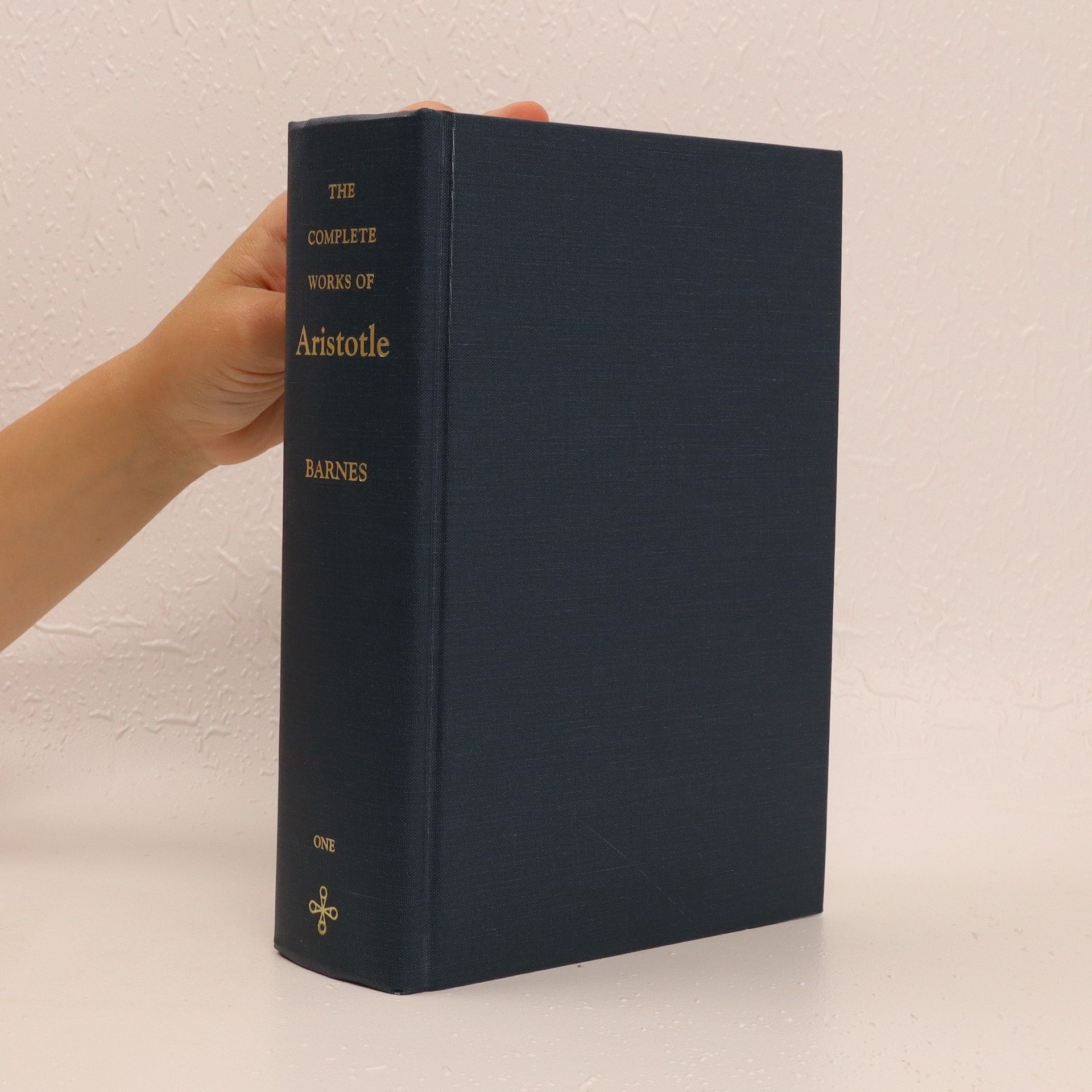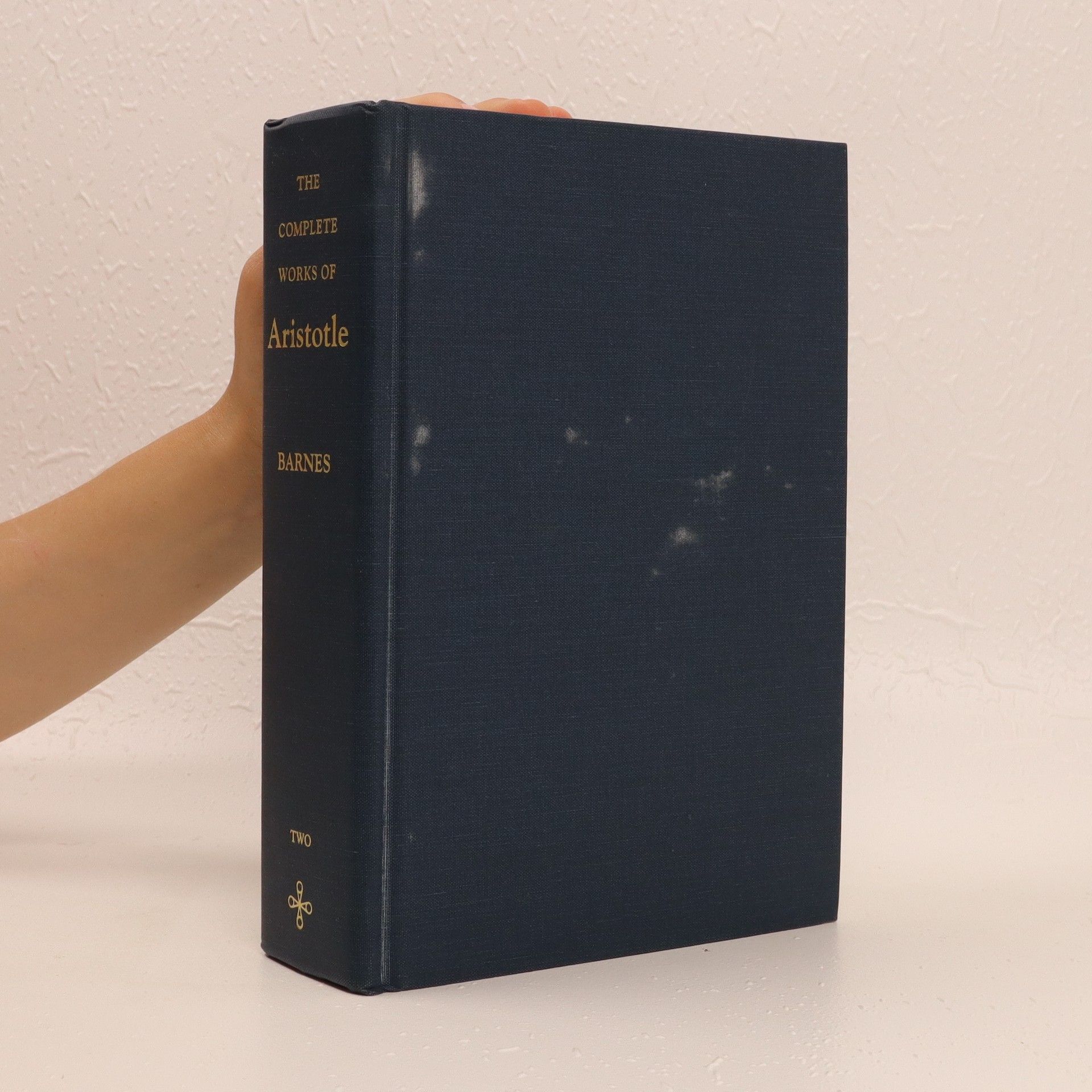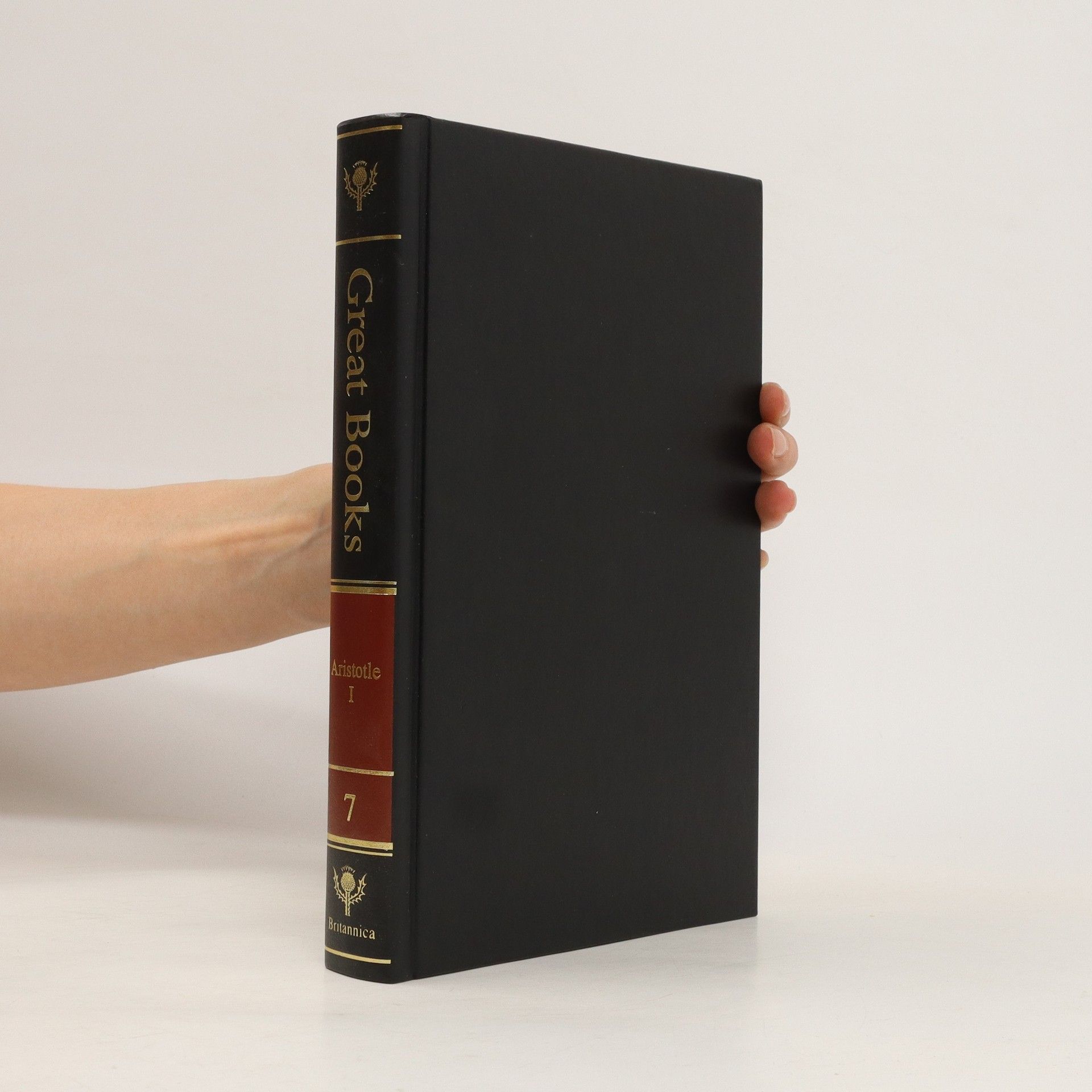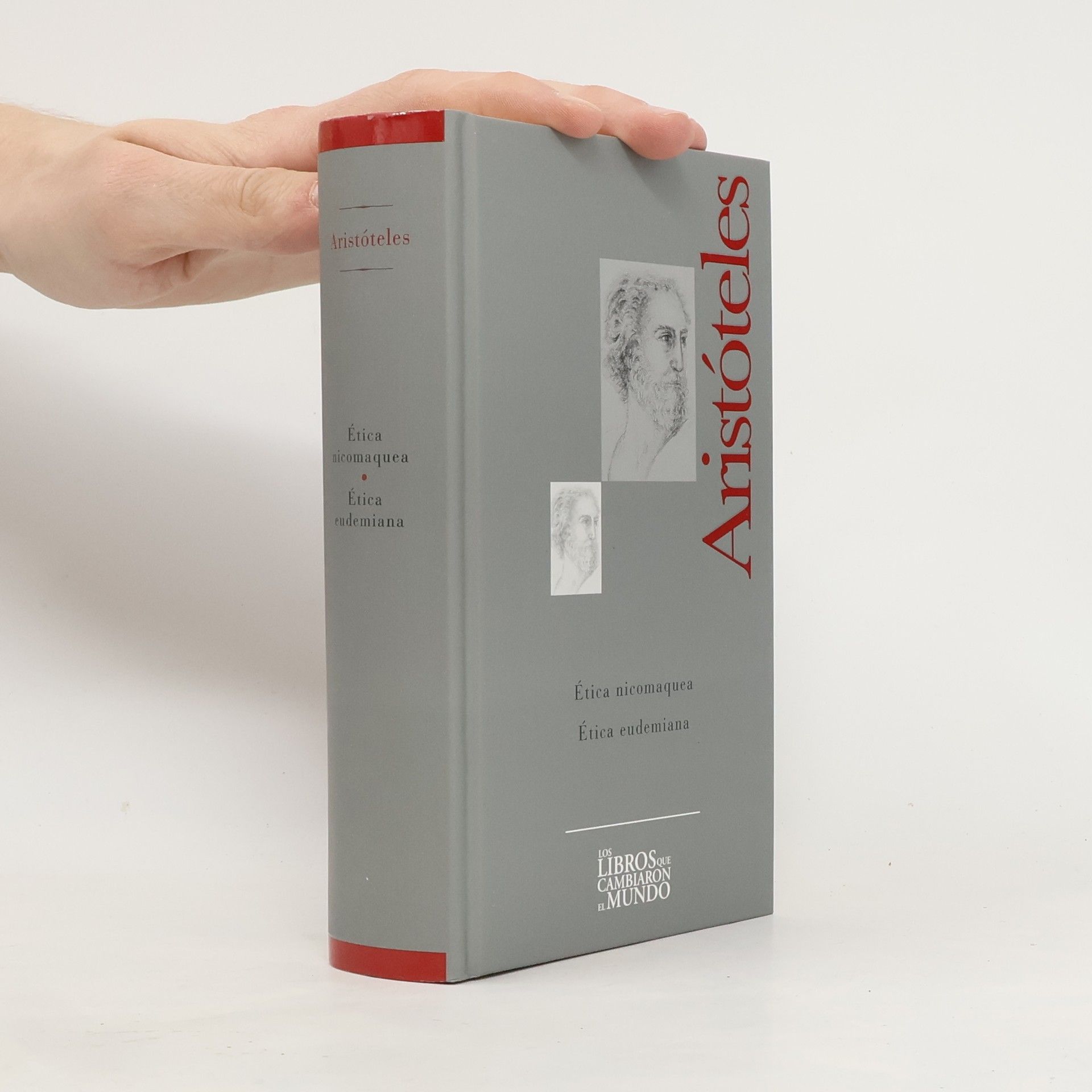Aristotelés Libros







Encyclopædia Britannica is proud to offer one of the most acclaimed publishing achievements of the 20th century, Great Books of the Western World. This monumental collection compiles history's greatest written works, from the ancient classics to more recent masterpieces. Great Books of the Western World contains 517 works from 130 of the most renowned minds throughout history. Volumes 1 and 2 comprise the Syntopicon®, a unique guide that enables you to investigate a particular idea and compare the perspectives of different authors. The Syntopicon organizes thirty centuries of thought into 102 Great Ideas, subsequently divided into topics and subtopics to effectively explore the different viewpoints over time. Authoritative, accurate, and complete, this collection represents the essential core of the Western literary canon
Collects works by Greek philosopher Aristotle on logic, physics, metaphysics, and the soul
The complete works of Aristotle : Volume 2 (the revised Oxford translation)
- 1246 páginas
- 44 horas de lectura
The Oxford Translation of Aristotle was originally published in 12 volumes between 1912 & 1954. It is universally recognized as the standard English version of Aristotle. This revised edition contains the substance of the original Translation, slightly emended in light of recent scholarship; three of the original versions have been replaced by new translations; and a new and enlarged selection of Fragments has been added. The aim of the translation remains the same: to make the surviving works of Aristotle readily accessible to English speaking readers.
The Oxford Translation of Aristotle was originally published in 12 volumes between 1912 and 1954. It is universally recognized as the standard English version of Aristotle. This revised edition contains the substance of the original Translation, slightly emended in light of recent scholarship; three of the original versions have been replaced by new translations; and a new and enlarged selection of Fragments has been added. The aim of the translation remains the same: to make the surviving works of Aristotle readily accessible to English speaking readers.
Aristotle's Categories and Propositions
- 172 páginas
- 7 horas de lectura
"This is a really excellent translation of the two Aristotelian works. The author respects English idiom and traditional understanding of the terms in a way that is truly remarkable. For instance, the names of the categories keep in English the full force of the original Greek designations, without strain on the English words. I noted numerous instances of this happy faculty as I read the translation." -Joseph Ownes Pontifical Institute of Medieval Studies
Aristotle's Theory Of Poetry And Fine Art
With A Critical Text And Translation Of The Poetics
- 460 páginas
- 17 horas de lectura
The book is a facsimile reprint of a scarce antiquarian work, preserving its historical significance despite potential imperfections like marks and notations. It aims to protect and promote cultural literature by providing a high-quality, affordable edition that remains true to the original.
Focusing on practical politics, this translation of Books V and VI of Aristotle's Politics offers clarity and accuracy, enhanced by David Keyt's insightful commentary. The commentary aids in navigating Aristotle's historical references, making it a valuable resource for readers seeking a deeper understanding of this foundational work in political philosophy.
Aristotle: Nicomachean Ethics, Books VIII and IX
- 254 páginas
- 9 horas de lectura
In books VIII and IX of his work on moral philosophy, Aristotle gives perhaps the most famous of all philosophical discussions of friendship. Michael Pakaluk presents a systematic study of these books, showing how important Aristotle's treatment of friendship is to his ethics as a whole.
The Categories
- 48 páginas
- 2 horas de lectura
Focusing on the classification of entities, this work by Aristotle outlines ten categories that encompass all possible subjects or predicates in propositions. Known for its significance in Aristotelian philosophy, it aims to categorize every object of human understanding without complex structure. The text has inspired extensive discussion and analysis, influencing later scholastic philosophers who explored its implications. This foundational work remains essential for understanding the framework of logic and categorization in philosophical discourse.